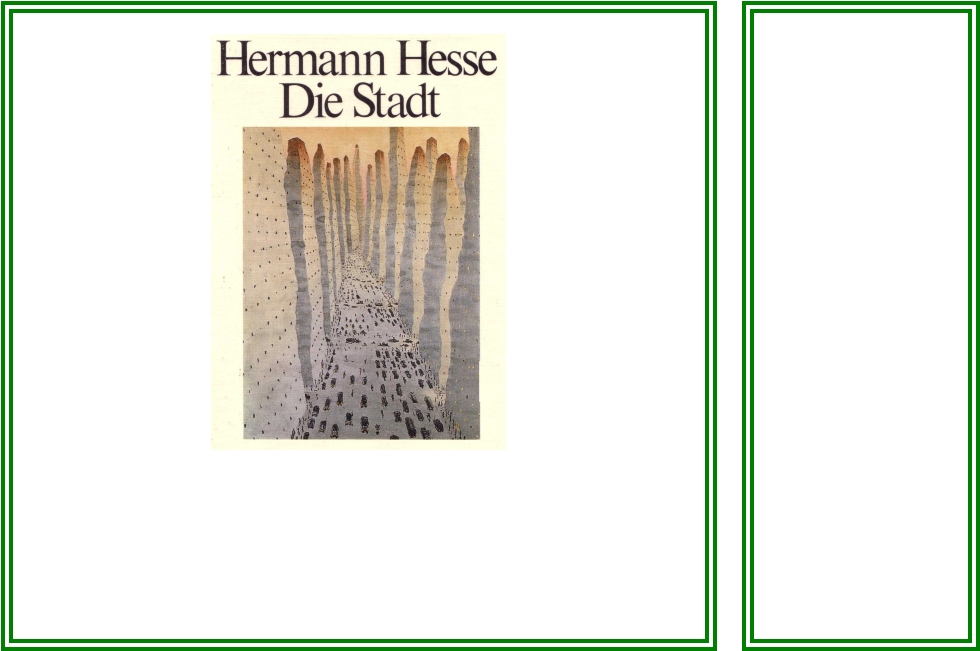
"The City"
A story written in 1910
Illustrated by Walter Schmoegner 1977
English version by Bernd Rohrmann 2003 - 16 viewgraphs
Bernd Rohrmann
Roman Research Road venture
Melbourne, Australia
For creating an English
version of the Hesse-
Schmoegner
booklet, I have
utilized the translation by R.
Manheim.
All paintings of Schmoegner
were scanned, to create
digital images.
Each viewgraph presents
two paintings and the
pertinent section of the
story.
The font for the texts
approximates the hand-
written style of Schmoegner.
Below is a selection of pages,
showing 9 of my viewgraphs.
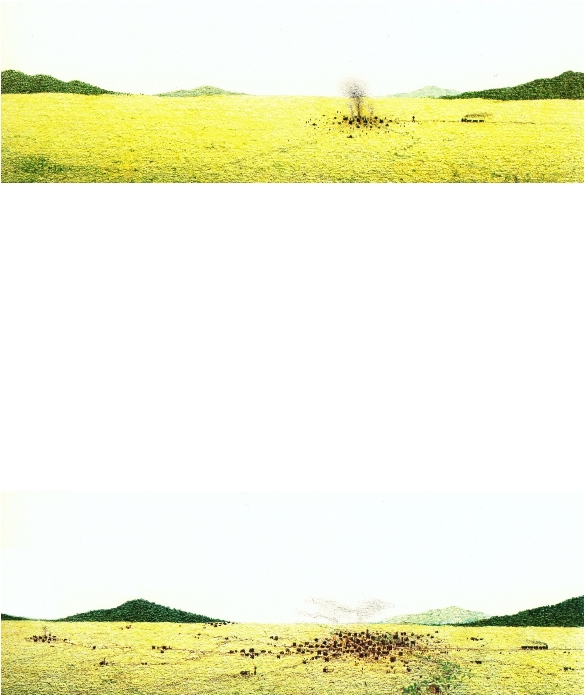
"Now we're getting somewhere," cried the engineer when the second train carrying people, coal, tools, and food
arrived over the stretch of track that had been laid only the day before. The prairies glowed softly in the yellow sunlight,
on the horizon the great wooded mountains were bathed in blue mist. Wild dogs and buffaloes looked on as work and
bustle moved into the wilderness, as heaps of coal and ash, paper and tin appeared on the green countryside. The first
power saw sent its piercing scream through the terror-stricken wilds, the first gunshot burst like a thunderclap and rolled
over the mountains, the first anvil rang under swift hammer blows. A tin-roofed shanty sprang up and next day a
wooden house, and then others day after day, soon followed by stone buildings.
The wild dogs and buffaloes kept their distance, the land was tilled and bore fruit. The very first spring the plains
were covered with green grain; farms and stables and granaries were built; roads cut through the wilderness. The
railroad station was completed and inaugurated, soon followed by a government building, and a bank. Several sister
cities, barely a few months younger, shot up nearby. Workers poured in from everywhere, peasants and city-dwellers;
merchants and lawyers came, preachers and teachers. It was not long before the town could boast of a school, three
religious congregations, and two newspapers.
..................................................................................................................................................................................................................
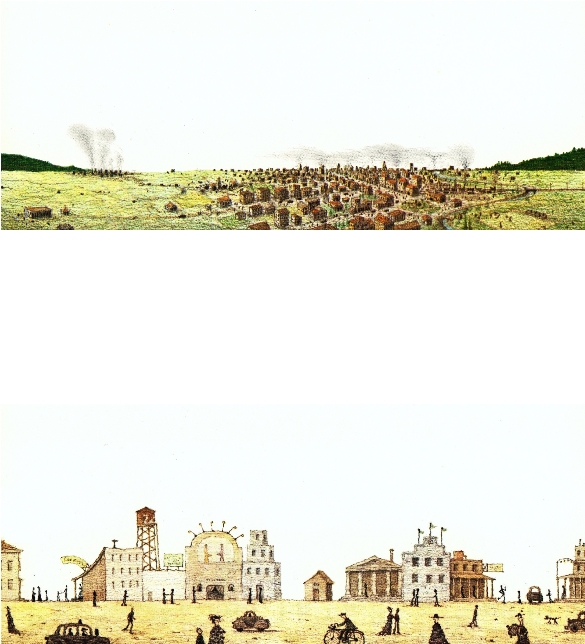
Oil was discovered in the west, prosperity came to the new city. Only a year later there were pick-pockets, burglars,
pimps, a department store, a temperance society, a tailor from Paris, a Bavarian beer hall. The competition of the
neighbouring towns acted as a goad.
Nothing was lacking, from election campaigns to strikes, from movie houses to spiritualist seances. French wine,
Norwegian herring, Italian sausage, English woolens, and Russian caviar all became available. Second-rate singers,
dancers, and musicians came through on tour.
..................................................................................................................................................................................................................
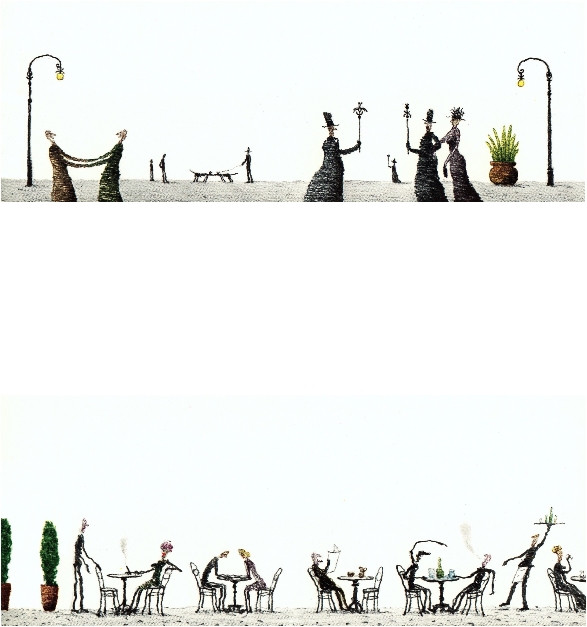
Little by little a culture grew up as well. The city, which had begun as a mere outpost, became a permanent dwelling
place. There was a manner of greeting, of nodding to those one met, which differed ever so slightly from that prevailing
in other towns. Men who had participated in founding the city came to be popular and respected; they were the nucleus of
a small aristocracy.
A young generation grew up, to whom the city seemed an old home that had been there just about forever. The days
when the first hammer stroke had resounded, the first murder had been committed, the first divine services held, the first
newspaper printed lay deep in the past and were looked upon as history.
..................................................................................................................................................................................................................
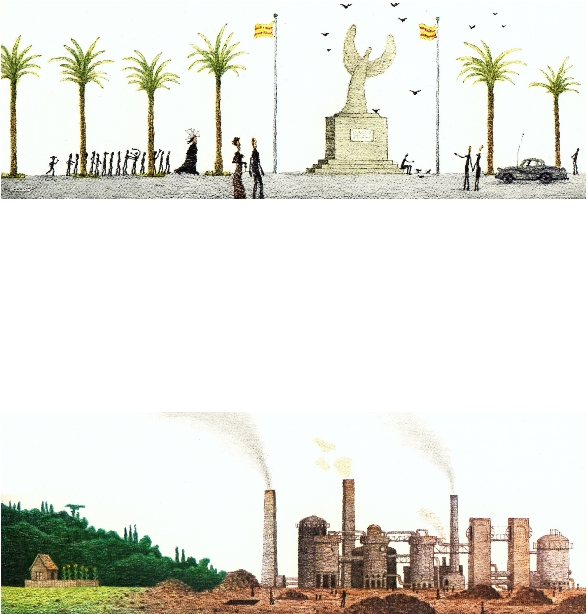
The city had come to dominate the towns round about; it was now the capital of a large region. Where once the first
shacks and shanties had bordered on ash heaps and puddles, now there were broad smiling avenues lined with imposing
banks and public buildings, theaters and churches. Students sauntered through the streets on their way to the university
or the library; ambulances threaded their way through the traffic; a congressman's limousine was sighted and cheered;
in twenty large school-houses built of stone and iron the founding of the city was celebrated each year with songs and
speeches. The former prairies were now covered with fields, factories, and villages and traversed by a dozen railroad
lines; thanks to the railroad the mountains had come closer. There, or far away by the seashore, the wealthy had their
summer houses.
..................................................................................................................................................................................................................
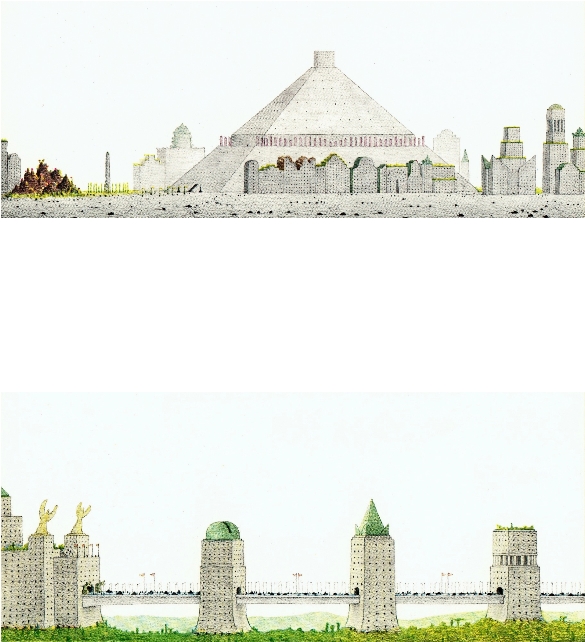
Politicians and architects, engineers and mayors came from all over the world to study its buildings, waterworks,
administration, and institutions. Work was begun on a new city hall, one of the largest and most magnificent buildings
in the world, and since this period of rising prosperity and local pride coincided happily with a general flowering of taste,
particularly in architecture and sculpture, the rapidly growing city became a miracle of pride and beauty. The midtown
section, whose buildings without exception were faced with a noble light-gray stone, was surrounded by a broad belt of
splendid parks, beyond which long avenues, bordered by rows of houses, lost themselves in the open country.
..................................................................................................................................................................................................................
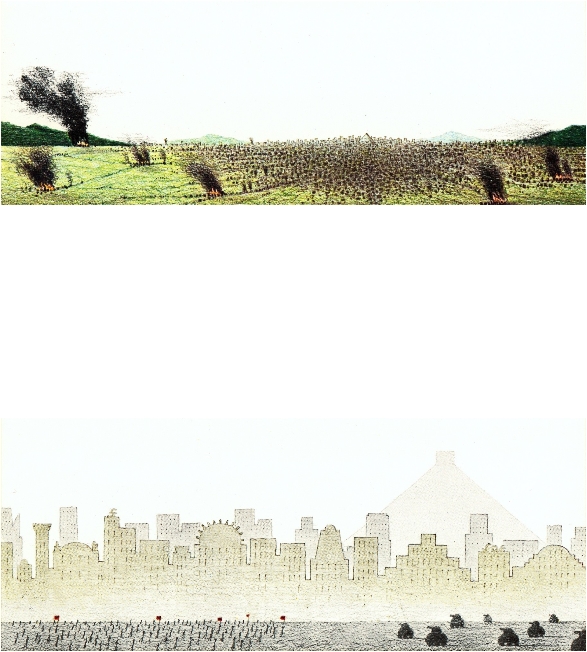
The city's wealth and luxury increased at a headlong pace and attained their peak in the next century. Then a
bloody revolution of the lower classes put an end to this development. The mob began by setting fire to many of the large
oil fields in the vicinity. A large part of the region, with its factories, farms, and villages, was burned or laid waste.
Despite massacres and horrors of every kind, the city itself survived. In the quiet years that followed, it gradually
recovered, but never again regained its old prosperity. There was no new building. During the troubled years a distant
country beyond the seas had begun the flourish. It yielded grain and iron, silver and other treasures with the
abundance of a generous, untired soil. The new country attracted the fallow energies, the strivings and ambitions of the
old world, cities sprang from the ground overnight, forests disappeared, waterfalls were harnessed.
..................................................................................................................................................................................................................
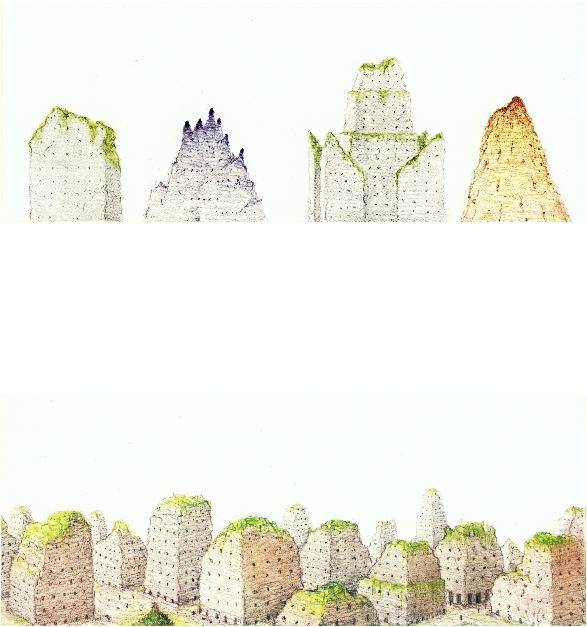
For a century or two the dreaming old city was loved and revered by the young people of the world, celebrated by
poets and visited by lovers. But life was shifting more and more to other continents. And in the city itself the descendants
of the old native families began to die out or go to seed.
The last cultural impulse had long since passed its prime and nothing remained of it but rotting vestiges. The small
towns round about were dead, reduce to silent ruins, visited now and then by foreign painters and tourists and
occasionally inhabited by gypsies and fugitive criminals.
..................................................................................................................................................................................................................
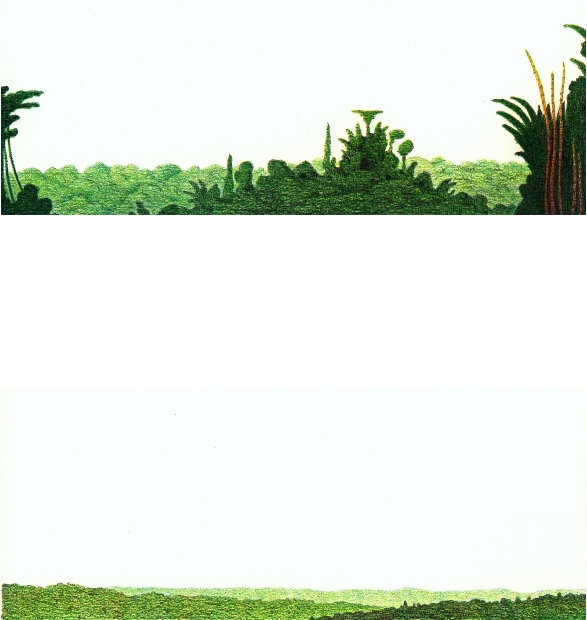
But the forest edged downward, from the mountains to the plain; lakes and rivers came into being and passed away,
and the forest advanced, slowly cloaking the whole countryside, the remnants of old walls, palaces, temples, and
museums. And fox and marten, wolf and bear inhabited the wilderness.
A young pine tree had taken root in the rubble of a fallen palace. Only a year ago it had been the first harbinger of
the approaching forest. But now, as it looked about, it saw new saplings far and wide.
..................................................................................................................................................................................................................
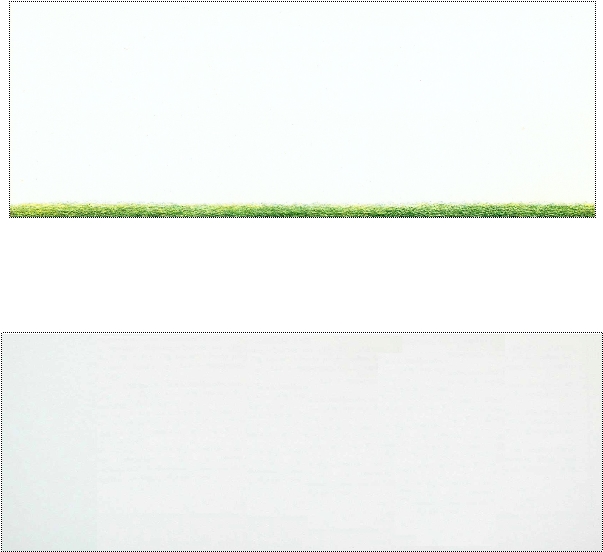
"Now we're getting somewhere!" cried a woodpecker who was hammering at the trunk, and looked with satisfaction at
the spreading forest and the magnificent green progress that was covering the earth.